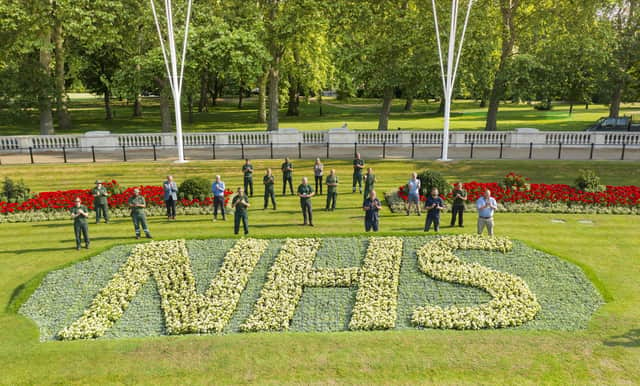Scottish university to use AI to decide patients that need bowel screenings


The £3.4 million project dubbed INCISE – INtegrated TeChnologies for Improved Polyp SurveillancE – will help University of Glasgow academics predict which patients will develop future tumours and pre-cancerous lesions, or polyps.
It has been suggested the existing guidelines for clinicians are not accurate, meaning many people undergo unnecessary and invasive procedures while only one in 20 people in Scotland are found to have cancer at a colonoscopy.
Advertisement
Hide AdAdvertisement
Hide AdThe new precision tool will identify patients who would benefit the most from a colonoscopy so they are seen earlier, and any cancer can be treated sooner. Researchers will combine data from NHS Greater Glasgow and Clyde’s Scottish Bowel Cancer Screening Programme with new analysis of the genetic mutations that causes polyps to grow.
Professor Joanne Edwards, from Translational Cancer Pathology at the university’s Institute of Cancer Sciences, welcomed funding from the UK Government for the project.
She said: “We are thrilled to receive this support and funding from Innovate UK, which will help us develop a programme that will hugely benefit both patients and our NHS.
“The University of Glasgow has wide experience in all aspects of colon cancer.
“By combining our knowledge with industry partners and the NHS, we can harness the power of artificial intelligence to assess which patients are prone to polyps and need further colonoscopies.
“By better predicting the needs of individuals, we can help patients avoid procedures that do not benefit them, while reducing the burden and cost to the NHS.”
It was announced that patients who had missed out on cervical screening appointments due to the Covid-19 lockdown were able to reschedule them from Monday.
The programme, which provides routine screening for women across the country, was temporarily paused during the pandemic, but the Scottish Government has outlined a phased restart as part of a wider remobilisation of NHS services. Ms Freeman said the resumption of screening programmes was based on expert clinical advice and the recommendations of the Scottish Screening Committee. The steps have also been agreed with health board chief executives.
Comments
Want to join the conversation? Please or to comment on this article.